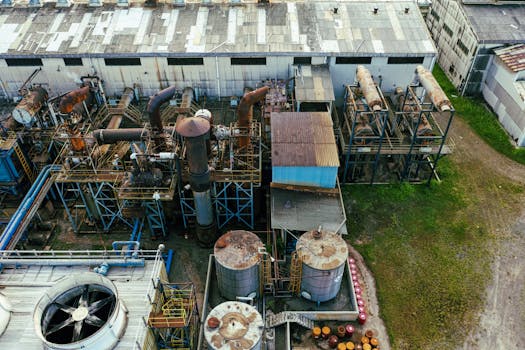+17162654855
+17162654855
NRP Publication News serves as an authoritative platform for delivering the latest industry updates, research insights, and significant developments across various sectors. Our news articles provide a comprehensive view of market trends, key findings, and groundbreaking initiatives, ensuring businesses and professionals stay ahead in a competitive landscape.
The News section on NRP Publication News highlights major industry events such as product launches, market expansions, mergers and acquisitions, financial reports, and strategic collaborations. This dedicated space allows businesses to gain valuable insights into evolving market dynamics, empowering them to make informed decisions.
At NRP Publication News, we cover a diverse range of industries, including Healthcare, Automotive, Utilities, Materials, Chemicals, Energy, Telecommunications, Technology, Financials, and Consumer Goods. Our mission is to ensure that professionals across these sectors have access to high-quality, data-driven news that shapes their industry’s future.
By featuring key industry updates and expert insights, NRP Publication News enhances brand visibility, credibility, and engagement for businesses worldwide. Whether it's the latest technological breakthrough or emerging market opportunities, our platform serves as a bridge between industry leaders, stakeholders, and decision-makers.
Stay informed with NRP Publication News – your trusted source for impactful industry news.
Energy

**
OPEC+ Output Cut Deepens Oil Price Volatility: Geopolitical Risks and Market Reactions
The energy market is experiencing significant turbulence as OPEC+’s recent decision to significantly cut oil production has sent shockwaves through global markets, triggering a sharp surge in oil prices amidst already heightened geopolitical tensions. This move, widely interpreted as a pro-Russia stance, has ignited fierce debate among global powers and sparked fears of further inflationary pressures and economic instability.
The Organization of the Petroleum Exporting Countries and its allies (OPEC+), a powerful cartel controlling a significant portion of global oil supply, announced a substantial production cut of 1.16 million barrels per day (bpd) in October 2023. This decision, coming at a time of already fragile global economic growth and significant inflationary pressures, has been met with widespread criticism from the West. The move is particularly concerning given the ongoing war in Ukraine and the resulting energy crisis in Europe.
Many analysts believe the decision reflects a strategic attempt by Saudi Arabia, the de facto leader of OPEC+, to support oil prices and increase its market share in the face of Western sanctions against Russia. This action, however, comes at a critical juncture, with many countries already grappling with high energy costs and the threat of recession. The perceived pro-Russia tilt of the decision has further exacerbated tensions between OPEC+ and Western nations, potentially escalating existing geopolitical conflicts.
Several intertwined factors contribute to the current oil price surge, beyond just the OPEC+ production cut:
The OPEC+ decision has sparked widespread concerns about renewed inflationary pressures. Higher oil prices translate to increased costs for transportation, manufacturing, and consumer goods, potentially eroding purchasing power and fueling further economic instability. Central banks, already wrestling with inflation control, face a renewed challenge in maintaining price stability.
The OPEC+ decision has further strained relations between the West and Saudi Arabia. The United States, in particular, has expressed its disappointment and concerns over the production cut, viewing it as a move that favors Russia and exacerbates global energy challenges. This episode highlights the complexities of global energy politics and the increasing influence of OPEC+ in shaping global energy markets.
Predicting future oil prices remains a complex task, influenced by a multitude of factors. However, given the current geopolitical climate and the OPEC+ production cut, it's highly likely that volatility will persist in the short term. The situation calls for careful monitoring of global events, including the ongoing war in Ukraine, the evolution of OPEC+ policy, and the overall state of the global economy. The impact of this decision will likely be felt across numerous sectors and economies for months to come, necessitating proactive strategies from governments and businesses alike. The oil price forecast remains highly dependent on evolving geopolitical dynamics and the interplay between global supply and demand.
Keywords: OPEC+, oil prices, oil price surge, oil production cut, geopolitical tensions, crude oil, energy crisis, inflation, recession, Saudi Arabia, Russia, Ukraine war, energy security, global economy, market volatility, commodity prices, Brent crude, WTI crude.